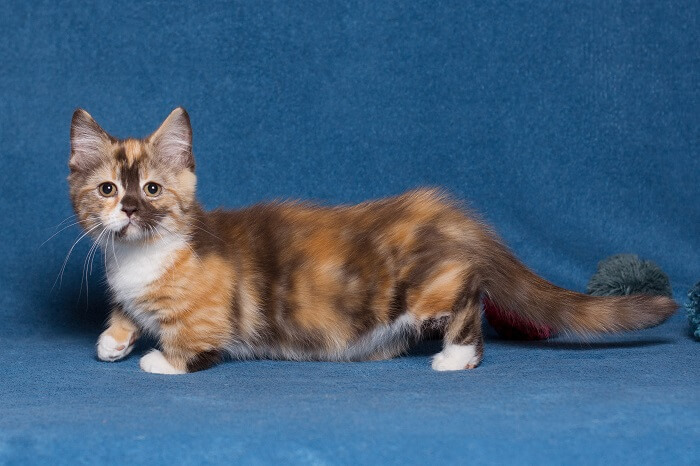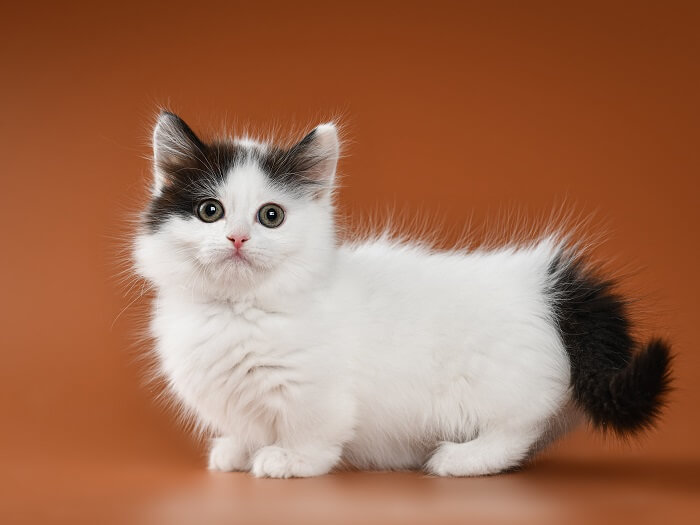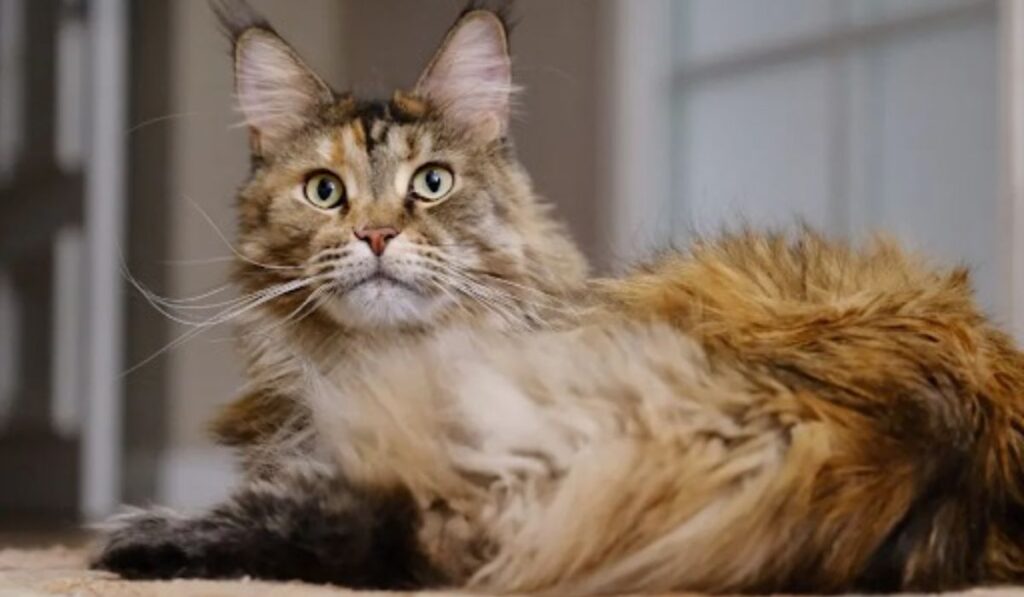Maine coon and munchkin cats are two distinct yet popular breeds with unique characteristics and care needs. While maine coons are known for their large size, long coats, and gentle demeanor, munchkins stand out for their short legs and playful personalities. Despite their differences, both breeds make wonderful pets when given proper care and attention. In this comprehensive guide, we’ll explore the essential steps to take care of maine coon for sale and munchkins, ensuring they stay happy, healthy, and well-adjusted.
Understanding the breeds
Before diving into the specifics of care, it’s important to understand the inherent traits of both breeds, as these will influence their daily needs.
- Maine coon. Maine coons are one of the largest domesticated cat breeds. They are muscular, have long, thick coats, and often weigh between 13 to 18 pounds, with males potentially growing even larger. Their sociable nature makes them excellent companions, and they are often referred to as “gentle giants.” They enjoy spending time with their owners but are also quite independent, capable of entertaining themselves.
- Munchkin. The munchkin cat, known for its short legs due to a genetic mutation, is much smaller than the maine coon, typically weighing between 5 to 9 pounds.
- Despite their short stature, munchkins are agile and playful, displaying kitten-like behavior well into adulthood. They are friendly, social, and enjoy interacting with their human family members.

Diet and nutrition
Proper nutrition is key to keeping both maine coons and munchkins healthy, but their dietary needs can differ due to their size and activity levels.
- Maine coon. Maine coons have a higher calorie requirement due to their large size and muscular build. Choose high-quality cat food that is rich in protein, especially if your maine coon is particularly active. Opt for a diet that includes meat as the main ingredient, along with essential vitamins and minerals. Maine coons can be prone to obesity if overfed, so it’s important to monitor their portion sizes and avoid excessive treats.
- Munchkin. Munchkins, though smaller, have a fast metabolism due to their active and playful nature. They need a balanced diet rich in protein to maintain their energy levels. Like maine coons, munchkins www.kittensup4sale.com/munchkin should be fed high-quality cat food that supports their growth and overall health. Since munchkins are smaller, they should be fed appropriate portion sizes to avoid unnecessary weight gain.
Ensure that both breeds have access to fresh water at all times, as hydration is crucial for their overall health, particularly for maintaining kidney and urinary tract function.
Grooming requirements
Grooming is another important aspect of cat care that varies depending on the breed. Both maine coons and munchkins need regular grooming, but the frequency and methods will differ.
- Maine coon. Maine coons have long, thick fur that requires frequent grooming to prevent matting and tangles. Brushing their coat at least two to three times a week helps remove loose hair, dirt, and debris while reducing the risk of hairballs. Regular brushing also keeps their coat shiny and healthy.
In addition to brushing, you’ll need to pay attention to their ears, as maine coons are prone to ear infections due to their tufted ears. Clean their ears gently with a damp cotton ball, and avoid using cotton swabs, as these can damage the ear canal.
- Munchkin. Munchkins, depending on whether they have short or long fur, may have slightly different grooming needs. Short-haired munchkins only require brushing once a week, while long-haired munchkins should be groomed two to three times a week to prevent tangles and matting. Like maine coons, regular grooming helps minimize shedding and hairball formation.
Both breeds benefit from nail trimming every few weeks, and it’s essential to monitor their dental health. Brush their teeth regularly or provide dental treats to prevent plaque buildup.

Exercise and playtime
While both maine coons and munchkins enjoy playtime, their physical characteristics affect the way they exercise and move around.
- Maine coon. Despite their large size, maine coons are surprisingly agile and playful. They enjoy interactive toys, puzzle feeders, and climbing trees. Providing them with a tall scratching post or a sturdy cat tree will help them stay active and maintain their muscles. Regular playtime not only keeps them physically fit but also stimulates their minds, preventing boredom.
Maine coons also love exploring the outdoors, so if you have a safe, enclosed outdoor space, they’ll enjoy supervised outdoor adventures. Otherwise, indoor play and enrichment activities are enough to satisfy their curiosity and need for activity.
- Munchkin. Munchkins, despite their short legs, are incredibly active and playful. They may not jump as high as other cats, but they are quick on their feet and love to chase toys. Provide them with a variety of toys, including feather wands, balls, and laser pointers, to keep them entertained.
Because of their playful nature, munchkins need mental stimulation to prevent boredom. Puzzle toys and treat-dispensing toys are excellent options for keeping their minds sharp. Regular play sessions will also help them stay fit, especially since munchkins can be prone to obesity if they don’t get enough exercise.
Health concerns
Like all cats, maine coons and munchkins have specific health issues that owners need to be aware of to ensure early detection and treatment.
- Maine coon. Maine coons are generally healthy, but they are predisposed to certain genetic conditions, including hypertrophic cardiomyopathy (HCM), a heart disease that causes the thickening of the heart muscle. Regular veterinary checkups are essential for monitoring their heart health. Maine coons are also at risk for hip dysplasia, particularly due to their large size, so it’s important to monitor their mobility as they age.
- Munchkin. The munchkin’s short legs are a result of a genetic mutation, and while this doesn’t typically cause health problems, it can lead to spinal issues, such as lordosis (a condition where the spine curves inward). Regular vet visits will help monitor any potential skeletal or spinal issues that may arise.
Both breeds benefit from regular vaccinations, flea prevention, and routine vet checkups. If you’re purchasing a maine coon from a breeder, look for a reputable source, such as a maine coon for sale listing from a trustworthy breeder who screens for genetic conditions.
Socialization and training
Both maine coons and munchkins are friendly, sociable cats, but they have slightly different temperaments when it comes to socialization and training.
- Maine coon. Maine coons are known for their affectionate, dog-like personalities. They enjoy spending time with their owners and can easily be trained to walk on a leash or perform simple tricks. Positive reinforcement, such as treats and praise, works well when training a maine coon. They are intelligent cats that respond well to routine and gentle instruction.
- Munchkin. Munchkins are also social cats, and they enjoy being around people. Their playful and curious nature makes them easy to train with the right motivation.Munchkins, like maine coons, respond well to positive reinforcement and can learn tricks, play fetch, and even walk on a leash. They love interactive play, so incorporating toys into their training sessions will keep them engaged.
Conclusion
Caring for maine coons and munchkins requires attention to their unique characteristics, from feeding and grooming to playtime and health monitoring. While maine coons are large, majestic cats with a calm and affectionate nature, munchkins are energetic and playful, always eager for interaction. By understanding the specific needs of each breed, you can ensure a long, healthy, and happy life for your feline companion. If you’re considering adding one of these breeds to your family, you can explore options like a maine coon.


